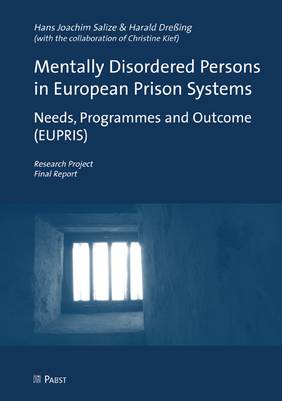"It is doubtful whether the majority of prisoners with psychiatric illnesses in Germany receive appropriate care such as that mandated by the European Convention on Human Rights and other international charters. Major deficits in German inpatient psychiatric care of prisoners are the lack of facilities for treating those with chronic mental illnesses and the inadequate management of acutely psychotic or delirious prisoners, which in many places leads to temporary ´parking´ in isolated cells. Compared to psychiatric care outside of prison, the equivalence principle has failed as a fundamental guide in many places in Germany," Professor Dr. Norbert Konrad (Berlin) summarizes his contribution to the European Research Project "Mentally Disordered Persons in European Prison Systems".
The Research Project confirmed internationally that "the prevalence of psychiatric morbidity among prisoners by far exceeds the rate of mental disorders in the general population. A review of 62 prison studies covering more than 23.000 prisoners worldwide found that 3,7 % of all male and 4% of all female prisoners had a psychotic disorder, 10% of all male and 12% of all female prisoners suffered from major depression, and 47% fulfilled the criteria for an antisocial personality disorder.
The reasons for rising proportions of mentally disordered prison inmates are manifold and complex. National conditions and circumstances play a pivotal role, but there are international trends in mental health care or other societal fields that are likely to contribute to the problem.
Rising levels of alcohol abuse and illicit drug use in allmost all societies increase exponentially the prevalence of these disorders in penitentiaries or prisons worldwide. Many experts see the growing incidence of mental health problems in prisons as an unwelcome consequence of the deinstitutionalisation process that was and is the basic programme of any psychiatric reform anywhere in the world. According to this hypothesis, closing down psychiatric hospital beds much faster than a sufficient number of community care services are or can be implemented may foster the neglect of non-compliant or violent mentally ill patients in community mental health care and compound the tendency of shifting them towards forensic psychiatric facilities or the prison system. More globally, an invariant and inverse correlation between the number of psychiatric hospital patients and the number of prisoners has been identified."
Mentally Disordered Persons in European Prison Systems – Needs, Programmes and Outcome (EUPRIS)
Salize, H.-J.; Dreßing, H. (with the collaboration of Christine Kief)






















